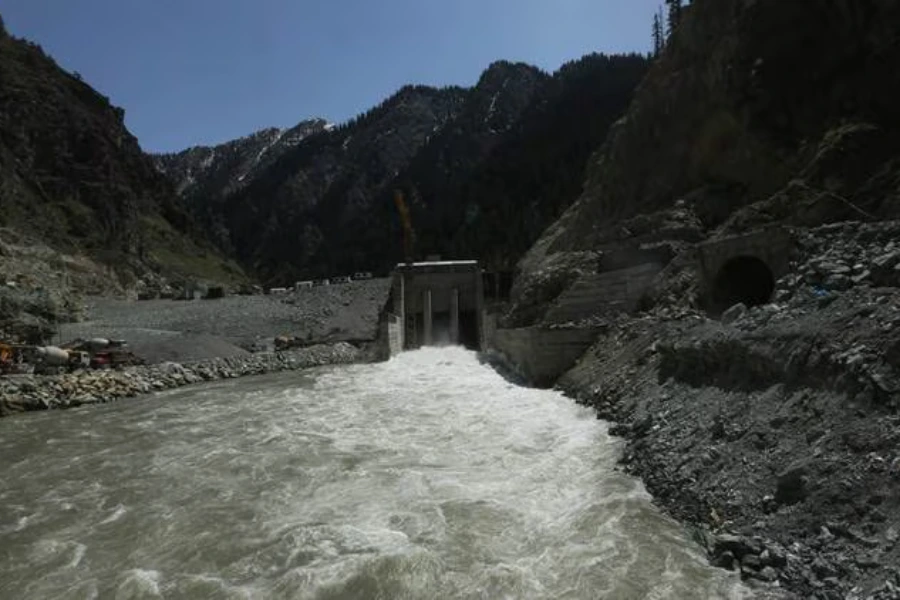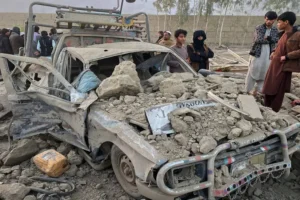
In a landmark and historic move, India has suspended the Indus Waters Treaty (IWT) with Pakistan—an international agreement that has managed the distribution of water between the two states since 1960. The decision follows the terrorist attack in Pahalgam on April 22, which killed 26, including a foreign national. The fading away of the IWT marks an end to a legal, practical and sociological understanding of water governance in India as a form of policy and strategy against its neighbor to the west.
An Agreement That Braved Wars and Issues
The IWT, engineered by the World Bank in 1960, is seen as one of the most successful and longest-standing international accords dealing with water sharing in the world. The IWT covers the six rivers of the Indus Basin:
Eastern rivers: Ravi, Beas, Sutlej (allocated to India)
Western rivers: Indus, Jhelum, Chenab (allocated to Pakistan)
As per the original agreement, India could only take 20% of the total Indus Basin water – roughly, 33 MAF or 41 BCM per annum, while Pakistan could take 80% or 135 MAF (99 BCM). In addition, while India had limited rights to the western rivers, it was still permissible for non-consumptive use of the western rivers, for examples, hydropower development.
The Turning Point: Terror Attack on April 22
Following a lengthy investigation that revealed cross-border linkages in the Pahalgam attack, the Cabinet Committee on Security (CCS), India’s ruling authority in matters of national security, approved the suspension. India has been warning of a review of IWT for the past few years because of terrorist activity. This is the first time India has taken tangible action of suspending the treaty.
The news reports will follow the suspension closely while analysts see the geopolitical, environmental, and humanitarian ramifications of the suspension.
Effects of the IWT Suspension on Pakistan
The irrevocable reliance of Pakistan on the Indus river system is complicated, but it is equally vital. The suspension could have a monumental effect on its agriculture, energy generation, and urban water supply.
Impact on Agriculture
Destined to the Indus Recent Agricultural Disruption
- About 80% of Pakistan’s agricultural land (approximately 16 million ha) relies on the Indus Basin for irrigation. This equals about 57% of Pakistan’s area.
- Irrigation alone uses 93% of this water.
- Essential crops, such as wheat, rice, sugarcane, and cotton rely on water for their existence.
- The irrigation system, clearly, is a major driver, contributing about 25% of Pakistan’s GDP, which poses a major risk to the economy.
Crises in Urban Capabilities & Energy
- The inner cities of Pakistan, like Karachi, Lahore, and Multan, get their water supply from these rivers.
- Hydropower plants such as Tarbela and Mangla depend on the continuous flow of both water and power.
- Water shortages could create urban riots, loss of energy, and high levels of unemployment for rural inhabitants who do not have water.
Impact on humanity
The Indus Basin has a population of more than 237 million, with 61% of them living in Pakistan.
Pakistan is one of the most water-stressed countries the world, and it continues to decline per capita water availability.
Should India decide to stop or alter the flow of water, the possible results would be:
- Shortages of food, increased prices
- Urban water shortages
- Loss of power: outages and increased industrial stifles
- Loan defaults, forced movement from rural areas.
India’s Tactical Shift
India’s action signals a stronger stance toward Pakistan’s handling of cross-border terrorism. Pakistan’s threat of renunciation of the treaty in prior attacks notwithstanding, this formal suspension clearly demonstrates that new red-lines have been drawn. In suspending the IWT, India has removed any previous constraints regarding its management of the Indus waters and this will provide total control of important water flows.
Importantly, the suspension might also be a negotiating tactic for future bilateral or multilateral discussions placing a great deal of pressure on Pakistan’s leadership.
What Comes Next?
While Pakistan has not responded formally, experts will anticipate legal and diplomatic obstacles. Certainly, the World Bank, a key supporter of the treaty may be called on to act, as will others. The act itself may bring international attention from partners with vested interests in water security and stability in South Asia.
As Pakistan and India navigate through this difficult moment, the suspension of the Indus Waters Treaty will remain an important headline in recent news updates, embodying the merger of national security, environmental diplomacy, and humanitarian concerns in one of the world’s unstable regions.






